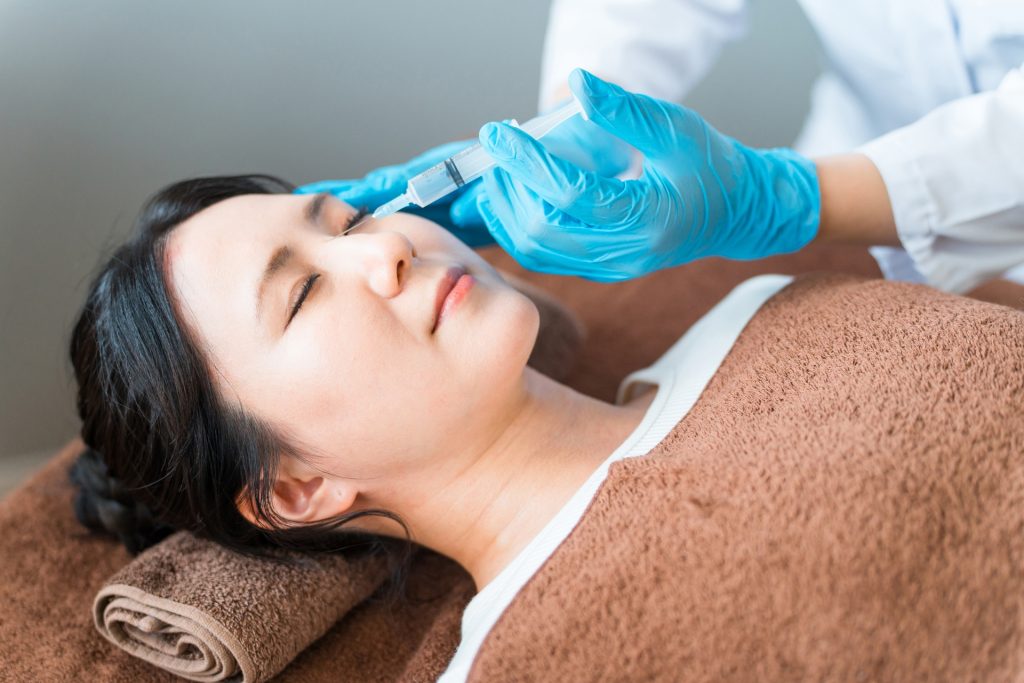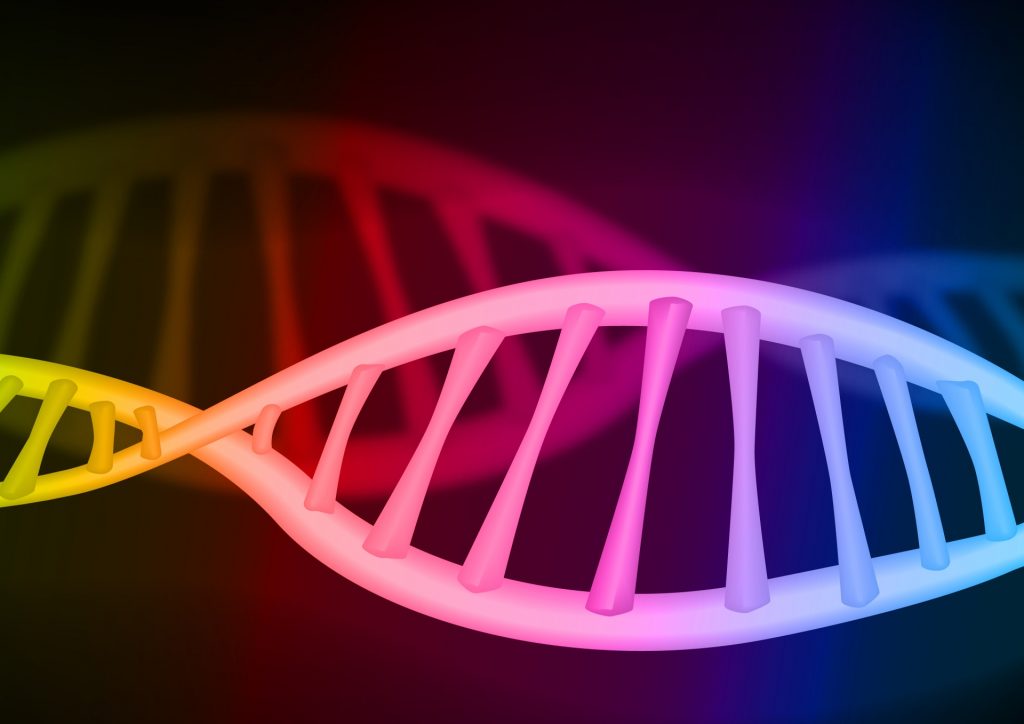
この記事の概要
遺伝子検査を活用することで、肌の老化リスクや特性を把握し、個別化美容ケアを実現できます。乾燥、シワ、シミなどのリスクに合わせた適切なケアを行うことで、効果的なアンチエイジングが可能になります。遺伝子情報を活用して、自分に合った美容法で健康的で若々しい肌を保ちましょう。
Introduction: The relationship between genes and skin aging
Skin aging is a natural process that accompanies aging, but the speed and symptoms of aging vary from person to person. These differences are deeply related to environmental factors such as ultraviolet rays and lifestyle habits, as well as genetic factors. Recent research has revealed that certain genes affect skin aging, and personalized beauty (personalized skin care) using genetic testing has attracted attention.
In this article, we take a closer look at the main genes involved in skin aging, cosmetic approaches using genetic testing, and evidence-based countermeasures.
1. Major genes involved in skin aging
Skin aging is driven by biological processes such as collagen and elastin loss, oxidative stress, and DNA damage. Here we introduce the main genes involved in these processes.
1.1 MMP1 gene: Collagen degradation
The MMP1 (matrix metalloproteinase 1) gene codes for an enzyme that breaks down collagen. People with certain gene polymorphisms have higher MMP1 activity, which leads to faster collagen breakdown and makes them more susceptible to wrinkles.
- Solution: Use skin care products containing retinol or vitamin C to inhibit collagen breakdown.
1.2 COL1A1 gene: Collagen production ability
The COL1A1 gene regulates the production of collagen, which maintains skin elasticity. Mutations in the gene can lead to reduced collagen synthesis, making skin more susceptible to sagging and wrinkles.
- Countermeasures: Take collagen peptides, protect yourself from UV rays, and take appropriate moisturizing care.
1.3 SOD2 gene: antioxidant defense
The SOD2 gene codes for an antioxidant enzyme called superoxide dismutase (SOD), which plays a role in breaking down active oxygen. When the function of this gene is reduced, oxidative stress accumulates, accelerating skin aging.
- Countermeasures: Actively consume antioxidant foods (vitamin E, polyphenols) and reduce the effects of ultraviolet rays and air pollution.
1.4 MC1R gene: UV resistance and risk of spots
The MC1R gene controls melanin production and protects the skin from DNA damage caused by ultraviolet rays. Mutations in this gene reduce resistance to ultraviolet rays and make skin more susceptible to spots and pigmentation.
- Countermeasures: Be sure to use sunscreen and make use of whitening ingredients (hydroquinone, arbutin).
1.5 FOXO3 gene: Suppression of cellular aging
The FOXO3 gene plays an important role in cell repair and longevity, and mutations in the gene may reduce DNA repair capabilities and lead to premature skin aging.
2. The potential for personalized beauty through genetic testing

2.1 What genetic testing can tell you
Cosmetic genetic testing can analyze the following items:
- Risk of wrinkles (MMP1, COL1A1)
- Risk of spots and pigmentation (MC1R, TYR)
- Antioxidant capacity (SOD2, GPX1)
- UV resistance (MC1R, ASIP)
- Moisturizing function (FLG gene)
2.2 How to use genetic testing
Based on the results of your genetic testing, you may be able to personalize your skin care routine, including:
- People with low antioxidant capacity → Strengthen skin care products that contain vitamin C and polyphenols
- People who are sensitive to UV rays : Apply high SPF sunscreen frequently
- People who are prone to collagen breakdown → Take in retinol and peptide ingredients
Genetic testing can be a powerful tool for selecting the optimal beauty treatment for each individual’s skin type.
3. Scientific evidence and research results
In recent years, many studies have revealed the relationship between genes and skin aging.
- MMP1 gene and wrinkle formation (Journal of Investigative Dermatology, 2015)
- It has been reported that people with certain polymorphisms in the MMP1 gene are more susceptible to wrinkles due to accelerated collagen breakdown caused by ultraviolet rays.
- Article link
- Relationship between the FOXO3 gene and aging (Nature Communications, 2018)
- It has been suggested that mutations in the FOXO3 gene affect the repair ability and lifespan of skin cells.
- 論文リンク
- MC1R gene and risk of pigmentation (Pigment Cell & Melanoma Research, 2017)
- Mutations in the MC1R gene have been shown to reduce skin resistance to UV damage.
- 論文リンク
4. Gene-based skin care strategies to slow skin aging

4.1 Anti-Wrinkle/Sagging Skin: Care Based on MMP1, COL1A1, and ELN Genes
The main cause of wrinkles and sagging skin is loss of elasticity due to the breakdown of collagen and elastin. The rate of breakdown of these is influenced by genes such as MMP1, COL1A1, and ELN (elastin gene).
(1) Measures for people who are prone to MMP1 gene activation
People with a certain variant of the MMP1 gene are more susceptible to wrinkles as collagen breaks down more quickly in response to ultraviolet rays and stress.
- Recommended ingredients: Retinol (vitamin A derivative), niacinamide, vitamin C
- Lifestyle habits: Take thorough measures to protect against UV rays and consume antioxidant foods (blueberries, green tea, etc.).
(2) Measures for people with COL1A1 gene mutations
If the COL1A1 gene is mutated, the ability to produce collagen decreases, making the skin more susceptible to sagging and loss of firmness.
- Recommended ingredients: Collagen peptides, hyaluronic acid, peptide ingredients
- Lifestyle: Promote blood flow through moderate exercise and consume foods that support collagen production (fish, legumes).
(3) ELN gene mutations and elastin maintenance
Elastin is an important protein that maintains skin elasticity and is produced by the ELN gene. Mutations in this gene decrease the synthesis of elastin, making skin more prone to sagging.
- Recommended ingredients: Elastin Peptides, Vitamin C, Niacinamide
- Lifestyle habits: Get a moderate massage and exercises to strengthen your facial muscles.
4.2 Measures against spots and dull skin: Care based on MC1R, TYR, and SLC45A2 genes
The causes of spots and dullness are pigmentation caused by excess melanin production and UV damage. MC1R, TYR (tyrosinase gene), and SLC45A2 genes are involved in regulating melanin production.
(1) Differences between the MC1R gene and UV resistance
If the MC1R gene is mutated, the skin’s defense against ultraviolet rays is weakened, making it more susceptible to the development of blemishes.
- Recommended ingredients: Vitamin C, tranexamic acid, arbutin
- Lifestyle habits: Use SPF50+ sunscreen and wear clothing with UV protection.
(2) TYR gene activity and melanin production
The TYR gene codes for the tyrosinase enzyme involved in melanin production. High activity increases the production of melanin and increases the risk of dark spots.
- Recommended ingredients: Hydroquinone, Vitamin C derivatives, Glutathione
- Lifestyle: Consume foods with antioxidant properties (tomatoes, avocados).
(3) SLC45A2 gene and skin pigmentation
Mutations in the SLC45A2 gene affect the degree of skin pigmentation. People with certain variants are more prone to darker pigmentation and therefore require more intensive skin whitening care.
- Recommended ingredients: Niacinamide, Arbutin, Placenta Extract
- Lifestyle : Consider peels and laser treatments to promote cell turnover.
4.3 Moisturizing and barrier function strengthening: Care based on FLG, AQP3, and SPINK5 genes

Dry skin and a weakened barrier function can cause wrinkles and rough skin. FLG (filaggrin gene), AQP3 (aquaporin gene), and SPINK5 (skin barrier-related gene) are involved.
(1) FLG gene mutations and dry skin
If the FLG gene is mutated, the skin’s barrier function is weakened, making it easier for moisture to evaporate.
- Recommended ingredients: ceramides, hyaluronic acid, shea butter
- Lifestyle habits: Avoid excessive washing of the face and use moisturizing cream frequently.
(2) AQP3 gene and water retention ability
The AQP3 gene codes for the aquaporin 3 protein, which transports water into cells. Mutations in this gene lead to a reduced ability to retain water and a loss of skin elasticity.
- Recommended ingredients: glycerin, hyaluronic acid, urea
- Lifestyle habits: Use a humidifier and make sure to drink plenty of fluids.
(3) SPINK5 gene and sensitive skin
When the SPINK5 gene is mutated, the skin’s defense function is weakened, and it becomes more sensitive to external stimuli.
- Recommended ingredients: Allantoin, Panthenol, Centella Asiatica Extract
- Lifestyle habits: Use mild skin care products and avoid excessive friction.
5. The evolution of aesthetic medicine based on genetic information

Advances in genetic analysis have made personalized treatments possible in the field of aesthetic medicine. By utilizing specific genetic information, traditional one-size-fits-all skin care and treatments are evolving into more effective procedures with fewer side effects.
5.1 Using genetic testing to select cosmetic procedures
Genetic testing can identify skin type and the progression of aging, allowing for the optimization of cosmetic treatments, such as:
(1) Evaluation of suitability for laser treatment
- People with mutations in the MC1R gene are at higher risk of post-inflammatory hyperpigmentation (PIH) after laser treatment, so low-energy lasers or IPL (light therapy) are recommended.
- People with high TYR gene activity have more active melanin production and therefore need to step up their whitening care after laser treatment.
(2) Individual differences in the effects of hyaluronic acid and Botox
- People with a mutation in the COL1A1 gene tend to have shorter-lasting hyaluronic acid injections and may need additional treatments sooner than usual.
- People with high activity of the MMP1 gene may experience a shortened effect of Botox, and appropriate dosage adjustments are required.
(3) Evaluation of the suitability of PRP (platelet-rich plasma) therapy
- People with a mutation in the FOXO3 gene may be more susceptible to PRP therapy because their cells have a reduced ability to repair themselves.
- It is believed that improving regenerative abilities through PRP is particularly effective for people with low antioxidant capacity due to the SOD2 gene .
5.2 Customized skin care based on genetic information
An increasing number of services are being offered that prescribe the most suitable skin care products for each individual based on the results of genetic testing.
(1) Personalized beauty supplements
- For those who are prone to collagen breakdown: Collagen peptide + Vitamin C
- People with strong oxidative stress: Astaxanthin + Vitamin E
- For those prone to dry skin: Ceramide + Hyaluronic Acid
(2) Skin care products that utilize genetic data
- In the beauty industry, custom skin care that combines AI and genetic information is emerging.
- For example, L’Oreal and Procter & Gamble are developing personalized beauty products based on consumers’ genetic data.
6. The future of genetic beauty and research trends

The field of genetic beauty is developing rapidly, with new technologies appearing one after another. It is expected that further research will lead to more precise skin care and cosmetic medicine in the future.
6.1 Gene editing technology and beauty
- Anti-aging using CRISPR-Cas9 technology
- Advances in gene editing technology may make it possible to modify genes involved in aging.
- For example, technology may be developed to suppress the activity of the MMP1 gene and slow down collagen breakdown.
- Epigenetics and Skin Care
- Epigenetics (the regulation of gene expression) changes depending on lifestyle and environmental factors.
- For example, improving stress and diet can increase the expression of antioxidant genes (SOD2 and GPX1).
6.2 Integration of AI and genetic beauty
- Personalized beauty diagnosis using AI
- A system is being developed that uses AI to analyze genetic data and suggest optimal skin care and treatment options.
- For example, advances are being made in technology that allows genetic test results to be managed via a smartphone app and recommended ingredients to be adjusted in real time based on skin condition.
- Development of biosensor technology
- Wearable devices that measure skin condition in real time are beginning to appear.
- A system is currently under development that will link with genetic information to automatically suggest optimal skin care and beauty treatments.
7. Ethical issues in using genetic information
As genetic beauty becomes more widespread, some ethical issues have also come to light.
7.1 Protecting the privacy of genetic information
- Genetic information is highly confidential data and requires appropriate management.
- Some genetic testing companies have also sold customers’ genetic information to third parties, highlighting the need for data protection.
7.2 Risk of genetic discrimination
- If genetic beauty becomes more common, people with certain genes may have an advantage in the beauty market.
- For example, there is a risk that prejudice will arise, such as “people with genes that are good at producing collagen tend to be more beautiful.”
7.3 The boundary between medicine and beauty
- There is an argument that genetic testing should not be a substitute for a medical diagnosis.
- It is necessary to clearly define the boundary between genetic testing for cosmetic purposes and genetic testing for medical purposes.
8. The cutting edge of cosmetics using genetic analysis

The development of skin care products that utilize genetic information is progressing, and various brands are optimizing beauty ingredients based on scientific evidence.
8.1 Developing skin care products using gene scanning
The cosmetics industry is making progress in utilizing gene scanning to provide cosmetics tailored to each individual’s skin type and aging risk.
- Shiseido’s personalized skincare
- We have developed a service that uses genetic analysis to evaluate skin elasticity, wrinkles, and risk of blemishes, and prescribes optimal beauty ingredients.
- L’Oreal’s genetically tailored serum
- The company has announced a technology that analyzes users’ DNA samples and formulates beauty serums that take into account antioxidant power and sebum secretion levels.
8.2 Genetic-Based Selection of Skin Care Ingredients
Based on genetic information, the following ingredients are optimized:
- For those with low activity of antioxidant genes (SOD2, GPX1) → Serum containing astaxanthin, vitamin E, and resveratrol
- For people who are prone to collagen breakdown (high MMP1 activity) → Cream enriched with peptides, vitamin C, and retinol
- For people with poor moisturizing function (FLG gene mutations) → Moisturizing cream with high concentrations of ceramide, squalane, and glycerin
8.3 Development of inner care products using genetic testing
Research is also underway into supplements that utilize genetic analysis technology to support skin health from the inside.
- Dietary supplements to boost collagen production
- Collagen supplements with vitamin C and iron are recommended for people with COL1A1 gene mutations.
- Supplements that suppress melanin production
- For people with high activity of the TYR gene, skin-whitening supplements containing glutathione and L-cysteine are available.
9. The relationship between genetic beauty and hormone balance

Genes also affect hormone balance, which is directly linked to skin health. Differences in the genes that regulate the secretion of estrogen and androgen affect the susceptibility to skin problems.
9.1 Estrogen and skin elasticity: The ESR1 gene
Estrogen is an important hormone that promotes collagen production and maintains skin elasticity.
- People with a mutation in the ESR1 gene have reduced sensitivity to estrogen receptors and tend to experience a rapid loss of skin firmness after menopause.
- Countermeasures: Actively consume foods that contain isoflavones (soy products) to support hormone balance.
9.2 Sebum secretion and androgens: SRD5A2 gene
Androgens (male hormones) activate sebum secretion, which affects acne and enlarged pores.
- People with high activity of the SRD5A2 gene secrete more sebum and are prone to oily skin.
- Solution: Eat foods containing vitamin B6 to suppress excess sebum production.
9.3 Stress hormones and rough skin: NR3C1 gene
The amount of stress hormone (cortisol) secreted also varies genetically and can cause skin problems.
- People with a mutation in the NR3C1 gene are more sensitive to stress and prone to skin problems.
- Solution: Improve stress management through moderate exercise, yoga, and meditation.
10. Relationship between genetic analysis and intestinal flora: Beautiful skin and intestinal environment
Skin health is closely related to the intestinal environment, and the balance of intestinal flora is also influenced by genetic factors.
10.1 The relationship between intestinal bacteria and skin type
- People with high levels of Prevotella tend to have a high carbohydrate digestive ability and good skin moisturization.
- People with a predominance of Bacteroides bacteria have a weakened skin barrier function and tend to be more susceptible to inflammation.
10.2 Beauty habits to regulate your intestinal flora
- Taking probiotics (lactic acid bacteria and bifidobacteria) → Increases the good bacteria in the intestines and suppresses skin inflammation.
- Intake of dietary fiber → Balances intestinal bacteria and normalizes skin turnover.
10.3 Optimizing the intestinal environment through genetic testing
- People with a mutation in the FUT2 gene have difficulty accelerating the development of certain intestinal bacteria, so they require the supplementation of probiotics.
- People with mutations in the LCT gene (lactase) are unable to properly break down lactose and are therefore advised to limit their intake of dairy products.
11. Genetic Cosmetics and Epigenetics: The Impact of Environmental Factors on Skin Aging

It is known that genes are not fixed, but that their function can change depending on lifestyle and environmental factors. This concept of “epigenetics” is also being applied to the beauty industry.
11.1 Epigenetics and Skin Care
It has been shown that factors such as ultraviolet rays, diet, stress, and lack of sleep change the expression of genes involved in skin aging.
- Ultraviolet rays → Increases the activity of the MMP1 gene and promotes collagen breakdown.
- High carbohydrate diet → Glycation stress inhibits the function of the COL1A1 gene, causing skin to lose elasticity.
- Lack of sleep → The function of the CLOCK gene is disrupted, and skin turnover slows down.
11.2 Beauty strategies using epigenetics
Methods for suppressing skin aging by regulating gene expression are being researched.
- Intake of antioxidant foods (vitamin C and polyphenols) → Increases expression of the SOD2 gene and reduces oxidative stress.
- Fasting → Increases the activity of the FOXO3 gene and promotes cell repair function.
- Regular lifestyle habits → Regulates the rhythm of the CLOCK gene and normalizes skin turnover.
12. Future beauty trends using genetic testing
In the beauty industry, cutting-edge technologies that utilize genetic information are emerging one after another, and they are predicted to have a major impact on future beauty trends.
12.1 Personalized beauty using AI and genetic data
By combining AI with genetic analysis technology, a system is being developed that can analyze skin conditions in real time and suggest optimal beauty plans.
- Smart Mirror Technology
- By integrating genetic information and skin analysis data, it recommends beauty ingredients based on the risk of wrinkles and blemishes.
- AI diagnostic app
- Genetic test results can be managed on a smartphone to optimize the timing of skin care and choice of ingredients.
12.2 Custom-made cosmetics using genetic data
We are entering an era in which consumers will be provided with individually formulated cosmetics based on their genetic information.
- Optimizing beauty ingredients according to the user’s genotype
- For those at high risk of collagen breakdown, a beauty serum containing peptides
- A moisturizing cream with a matte finish for those with excessive sebum secretion
- DNA Encapsulation Technology
- Encapsulation technology is currently being developed that will release beauty ingredients at the optimal time depending on the skin condition.
summary
Cosmetic treatments that utilize genetic information are a groundbreaking approach that scientifically elucidates the mechanisms of skin aging and provides optimal skin care and cosmetic medicine for each individual. It has been revealed that genes such as MMP1 and COL1A1 are involved in wrinkles and sagging, while SOD2 and MC1R affect antioxidant activity and UV resistance.
More effective anti-aging care is possible by accurately understanding the characteristics of the skin through genetic testing and appropriately selecting ingredients such as retinol and vitamin C. Furthermore, personalized beauty combined with AI technology is evolving, and custom-made cosmetics and DNA capsule technology are being developed.
In the future, genetic beauty will develop into a more precise and scientific approach, ushering in an era in which care optimally tailored to each individual’s skin type can be provided.


